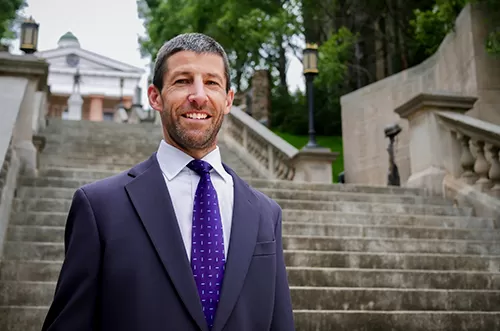CGI Fed. Inc. v. FCi Fed., Inc., 2018 Va. LEXIS 74, 2018 WL 2728726 (Va. June 7, 2018)
In 2012, the State Department solicited bids for a visa processing contract. CGI Federal, Inc. (“CGI”), as a large contractor, was ineligible to bid because the State Department reserved the contract for small businesses. Although FCi Federal, Inc. (“FCI”), as a smaller contractor, was eligible to bid for the contract, it did not have the capabilities to perform the work alone. Therefore, CGI and FCI agreed to cooperate in submitting a proposal for the contract and entered into a teaming agreement on September 19, 2012 (the “Teaming Agreement”) to prepare a proposal. Under Section 2.0 of the Teaming Agreement, FCI “retain[ed] express and exclusive control over all prime proposal activities . . . as well as negotiation of any resulting prime contract.” From the outset, CGI wanted at least 40% of the work available under the contract or its participation in the Teaming Agreement would not be worthwhile. The Teaming Agreement’s Statement of Work provided “Subject to the final solicitation requirements, [CGI] will receive forty-five percent (45%) work share of the total contract value . . . but the work share commitment may not be exactly 45% each year.”
During the proposal process, after receiving comments from the State Department, FCI notified CGI that its workshare would have to be reduced to 41%, which CGI agreed to accept. To offset this workshare reduction, CGI requested that FCI allocate ten management positions for CGI employees. One day later, FCI submitted a revised proposal to the State Department, which, contrary to FCI’s representations, only allocated 35% workshare to CGI and reserved all management positions for FCI.
On August 2, 2013, the State Department awarded FCI the contract, but Ikun, a competitive bidder, filed multiple protests with the State Department because it contended that FCI was ineligible to bid as a small business. To avoid further challenges to the award, FCI agreed to give Ikun and its affiliates work under the contract. Without CGI’s knowledge, FCI submitted a second revised proposal which provided CGI with only an 18% workshare and FCI with a 75% workshare. On March 31, 2014, the State Department finalized the contract with FCI. FCI and CGI then engaged in subcontract negotiations. At first, FCI offered CGI a 16% workshare, but later increased the offer to a 22% workshare. On June 20, 2014, while subcontract negotiations were ongoing, FCI and CGI entered a temporary agreement to allow CGI to begin working on the contract. CGI was paid more than $2,000,000.00 for the work it performed under this temporary agreement. CGI worked on the contract until November 10, 2014, at which point FCI terminated CGI for cause because of a staffing dispute.
The Supreme Court of Virginia held that the amended Teaming Agreement did not create any enforceable obligation for FCI to extend a subcontract with a 41% workshare and ten management positions to CGI. In Virginia, contractual provisions that merely set out agreements to negotiate future subcontracts are unenforceable because such provisions are too vague and indefinite to be enforceable. Although the amended Teaming Agreement contains a “Statement of Work” detailing CGI’s post-award workshare, the provision also stated that such work was “subject to the final solicitation requirements” of the contract. If FCI was awarded the prime contract, Section 3.1 of the amended Teaming Agreement required the parties to enter “good faith negotiations for a subcontract . . . subject to applicable laws, regulations, terms of the prime contract and . . . [CGI’s] best and final proposal to FCI.” Other provisions reflected similar conditional terms. “Taken together, these provisions make clear that the parties never agreed to the final terms of a subcontract and expressly conditioned the formation of a subcontract on future events and negotiations, including CGI’s “best and final proposal” to FCI for a subcontract.
There may be no recovery for loss of future profits when it is uncertain that there would have been any profits at all. Because the amended Teaming Agreement did not create an enforceable obligation for FCI to extend a subcontract to CGI, the terms of the subcontract, including CGI’s workshare, were uncertain and, consequently, any award of lost profits was uncertain. Therefore, the Supreme Court of Virginia held that the circuit court was correct, albeit for the wrong reason, in vacating the jury’s award of damages for CGI’s fraudulent inducement claim.
For its unjust enrichment claim, CGI sought to recover its expenses incurred in helping FCI win the prime contract and to disgorge FCI of any profits it realized from performing work promised to CGI. CGI, however, elected to sue for tort and contract damages and, as a consequence, affirmed the contract and consented to be bound by its provisions. Accordingly, the parties’ express contract remained in effect and FCI’s conduct in procuring the contract did not change the nature of CGI’s unjust enrichment claim – an alternative cause of action for breach of contract. Therefore, CGI could not recover on a quasi-contractual claim that was otherwise precluded by a contract which CGI affirmed.
In effect, the Supreme Court of Virginia affirmed the circuit court’s ruling that vacated the jury’s verdict for CGI totaling $11,998,000.00.




